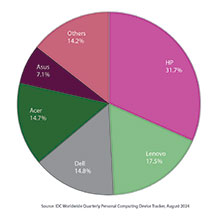
Trend Micro Cloud One is designed to mitigate threats across the cloud environment and support strict compliance requirements. This blocks known bad files, and looks for hidden or changing malware variants
Enriching its portfolio, Trend Micro has launched – reportedly world’s first – cloud-native and server-less file storage security tool for organizations engaged in building applications in the cloud. Christened Trend Micro Cloud One, the file storage security is designed to mitigate threats across the cloud environment and support strict compliance requirements. The tool blocks known bad files, and looks for hidden or changing malware variants.
Mark Nunnikhoven, Vice President, Cloud Research, Trend Micro, said, “Global organizations are increasingly looking to public cloud providers to drive IT agility, cost savings and business growth. But while the provider deals with security of the cloud, the customer is responsible for everything inside their cloud environment”. “This is a highly scalable, automated scanning tool that’s fast to deploy with no added infrastructure, allowing organizations to confidently store cloud files and data associated with their cloud applications” explained Nunnikhoven.
The explosion of cloud-based file and object storage presents a new attack vector for threat actors to target with malicious files. The Cloud One provides automated anti-malware scanning to keep information safe and ease compliance needs. The scanner itself is a lightweight, cloud-native serverless function that’s designed for minimal operational overhead. This architecture enables fast, seamless deployment and flexible integration with organizations’ existing custom workflows for added value. The tool supports various compliance requirements that call for anti-malware scanning of cloud files while maintaining data sovereignty.
Using Trend Micro’s Cloud One platform, teams can implement a range of security services and compliance checks without hindering agile cloud development and deployment. This single cloud-native security seamlessly complements and integrates with existing AWS, Microsoft Azure, VMware, and Google Cloud toolsets. Trend Micro Cloud One is available now for AWS S3, with support for Microsoft Azure Blob storage and Google Cloud Storage coming soon.






























































